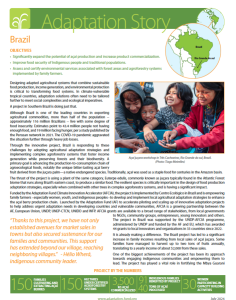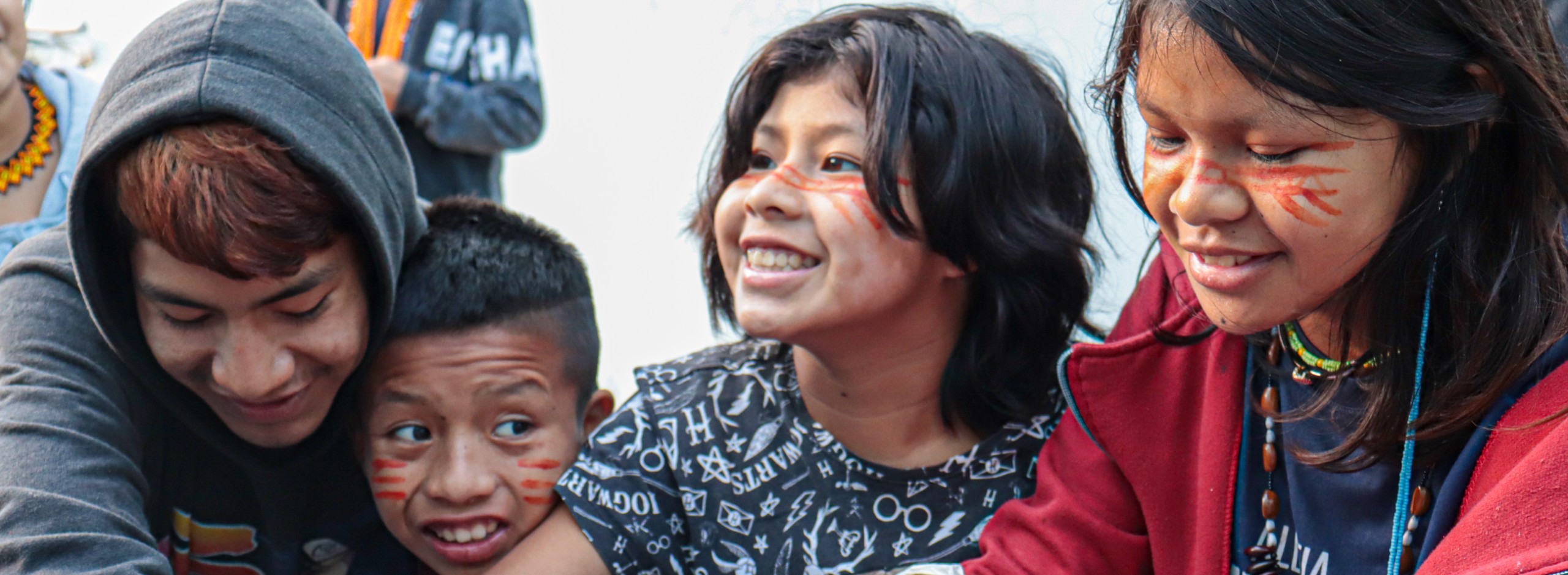Açaí juçara workshop in Três Cachoeiras, Rio Grande do sul, Brazil. (Photo: Tiago Meirelles)
Designing adapted agricultural systems that combine sustainable food production, income generation, and environmental protection is critical to transforming food systems. In climate-vulnerable tropical countries, adaptation solutions often need to be tailored further to meet social complexities and ecological imperatives.
A project in Southern Brazil is doing just that.
Although Brazil is one of the leading countries in exporting agricultural commodities, more than half of the population — approximately 116 million Brazilians — live with some degree of food insecurity. Estimates point to 43.4 million people not having enough food, and 19 million facing hunger, per a study published by the Penssan network in 2021. The COVID-19 pandemic aggravated the situation further through heavy job losses.
Through the innovative project, Brazil is responding to these challenges by adopting agricultural adaptation strategies and implementing complex agroforestry systems that foster income generation while preserving forests and their biodiversity. A primary goal is advancing the production-to-consumption chain of agroecological foods, notably the unique bitter-tasting açaí berry fruit derived from the juçara palm—a native endangered species. Traditionally, açaí was used as a staple food for centuries in the Amazon basin.
The thrust of the project is using a plant of the same category, Euterpe edulis, commonly known as juçara typically found in the Atlantic Forest biome that runs along Brazil’s eastern coast, to produce a similar food. The resilient species is critically important in the design of food production adaptation strategies, especially when combined with other trees in complex agroforestry systems, and is having a significant impact.
Funded by the Adaptation Fund Climate Innovation Accelerator (AFCIA), the project is implemented by Centro Ecológico in Brazil and is empowering family farmers –especially women, youth, and indigenous peoples–to develop and implement local agricultural adaptation strategies to enhance the açaí berry production chain. Launched by the Adaptation Fund (AF) to accelerate piloting and scaling up of innovative adaptation projects to help address urgent adaptation needs in developing countries and vulnerable communities, AFCIA is a growing partnership between the AF, European Union, UNDP, UNEP-CTCN, UNIDO and WFP. AFCIA grants are available to a broad range of stakeholders, from local governments to NGOs, community groups, entrepreneurs, young innovators and others. The project in Brazil was supported by the UNDP-AFCIA programme, administered by UNDP and funded by the AF and EU, which has awarded 44 grants to local innovators and organizations in 33 countries since 2022.
Read the full story here.
Attachments
| Attachment | Type | Size |
|---|---|---|
| English | 7 MB |



